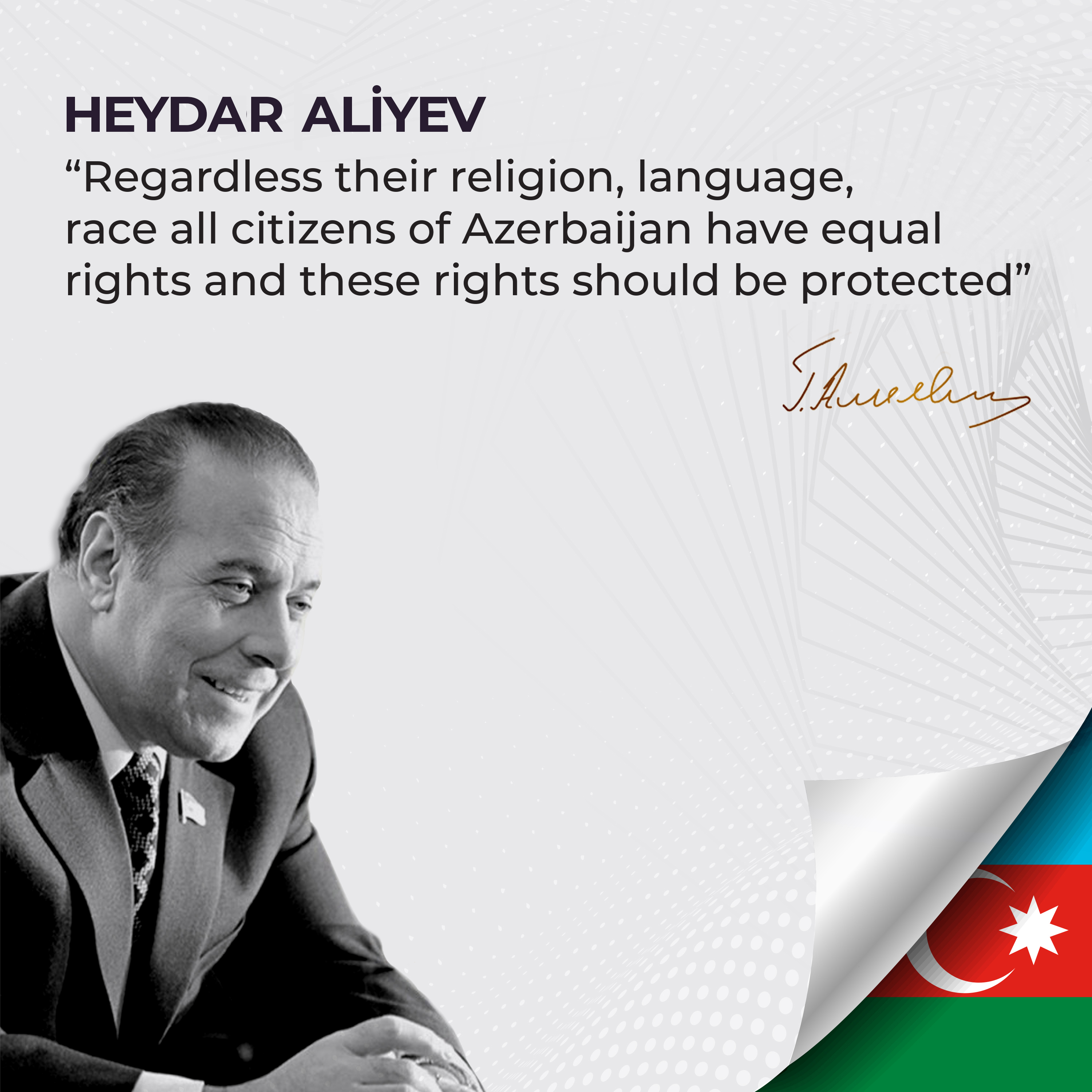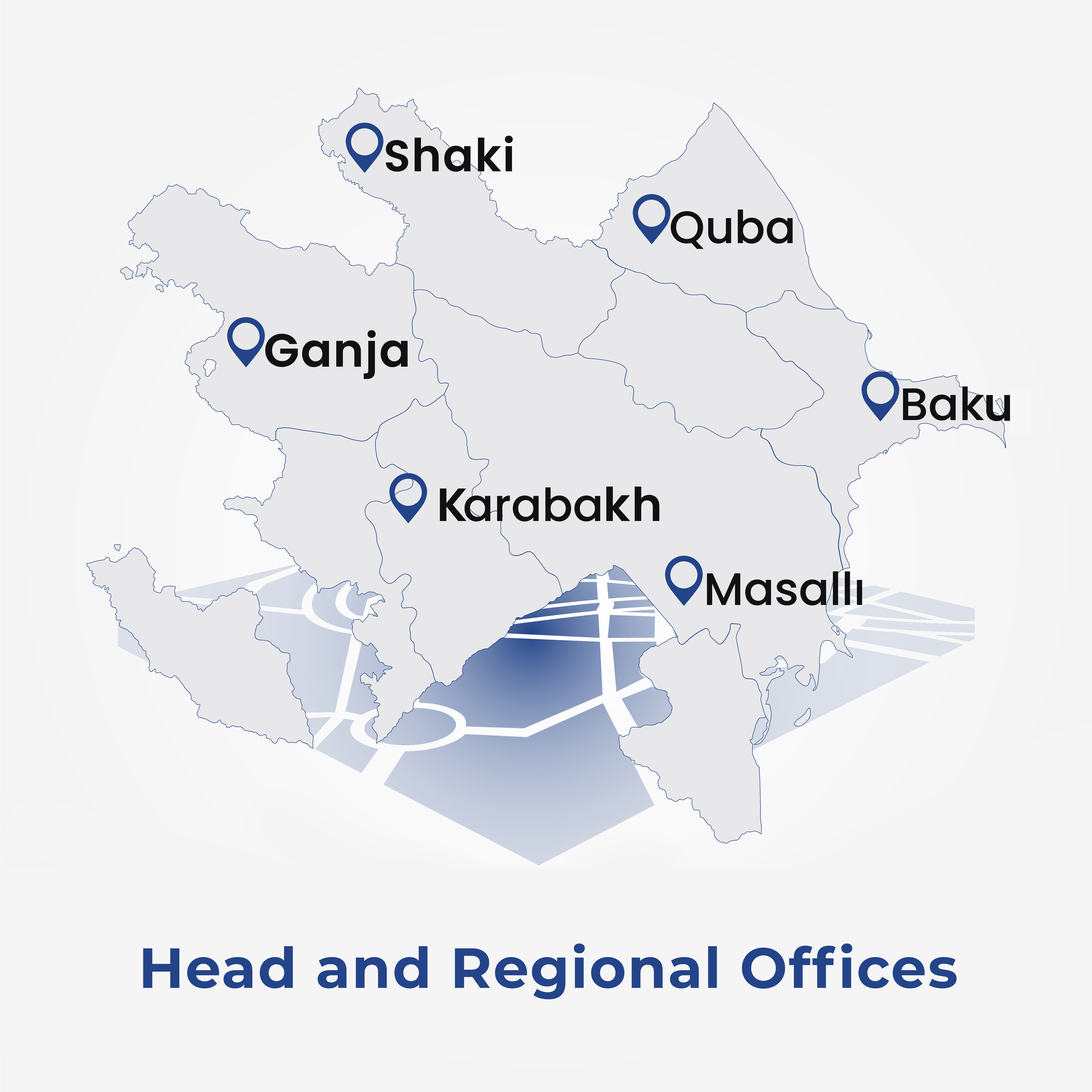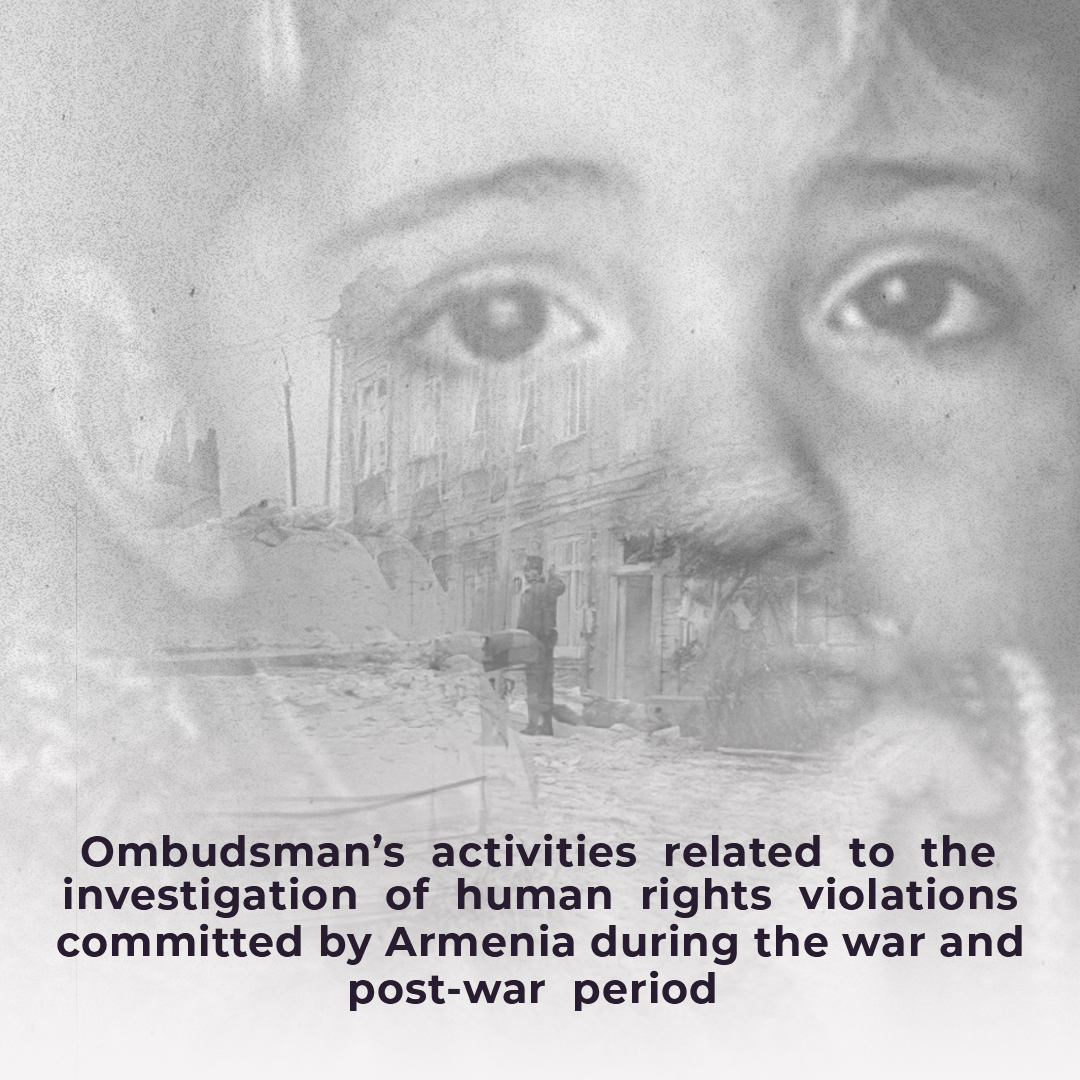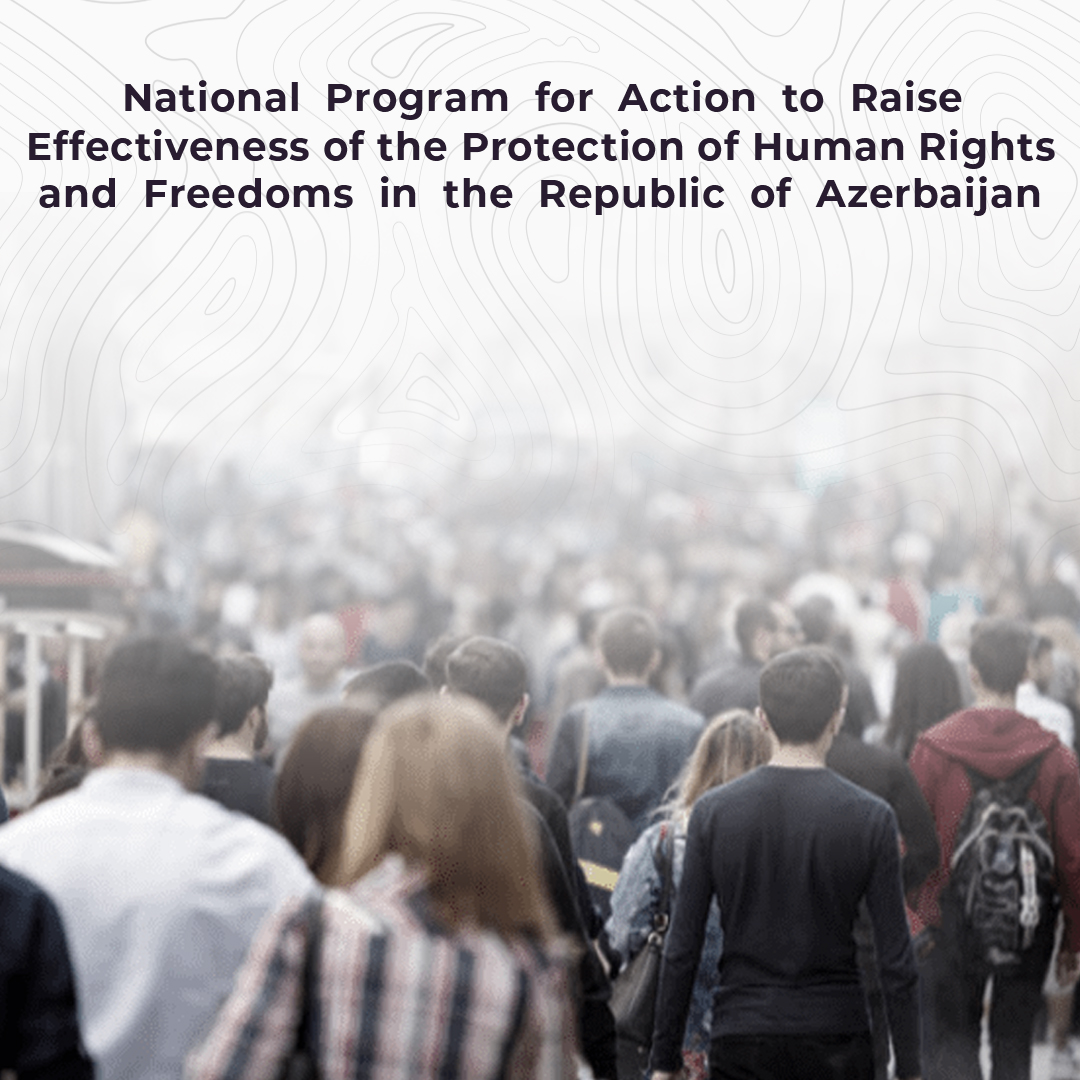
- Home page
- Commissioner
-
Activity Directions
- Mental Health and Human Rights
- Protection of the Rights of Population Groups
- Protection of the Right to Information
- Independent Monitoring Mechanism
- Legal Education
-
International Cooperation
- Cooperation with international organizations
- Cooperation with non-governmental organizations
- Study visits
- Projects
- Statements addressed to the international organizations
- “Ad hoc” reports
- Parallel and alternative reports submitted to the UN Treaty Bodies
- Oral and written statements submitted to the UN Human Rights Council
- Memorandums of cooperation
- Baku Declarations of Ombudspersons
- International Baku Forum
- Scientific Analytical Work
- Cooperation with Public and Civil Society Organizations
- Business and Human Rights
- National Preventive Mechanism Against Torture
- Protection of Human Rights
- Documents
- Media
- Live
- Contact
- Home page
- Commissioner
-
Activity Directions
- Mental Health and Human Rights
- Protection of the Rights of Population Groups
- Protection of the Right to Information
- Independent Monitoring Mechanism
- Legal Education
-
International Cooperation
- Cooperation with international organizations
- Cooperation with non-governmental organizations
- Study visits
- Projects
- Statements addressed to the international organizations
- “Ad hoc” reports
- Parallel and alternative reports submitted to the UN Treaty Bodies
- Oral and written statements submitted to the UN Human Rights Council
- Memorandums of cooperation
- Baku Declarations of Ombudspersons
- International Baku Forum
- Scientific Analytical Work
- Cooperation with Public and Civil Society Organizations
- Business and Human Rights
- National Preventive Mechanism Against Torture
- Protection of Human Rights
- Documents
- Media
- Live
- Contact
Call center
916
The Azerbaijani Ombudsman Sabina Aliyeva sent letters to Michelle Bachelet and Dunja Mijatovic on the activities of the Armenian Ombudsman that undermines peace in the region
The Commissioner for Human Rights (Ombudsman) of the Republic of Azerbaijan Sabina Aliyeva has sent letters containing the following to the UN High Commissioner for Human Rights Michelle Bachelet and the Council of Europe Commissioner for Human Rights Dunja Mijatovic on the Armenian Ombudsman's activities which are a blow to peacebuilding in the region:
Despite the end of the conflict between Armenia and Azerbaijan, statements and expressions promoting aggression and intolerance against Azerbaijanis under the influence and pressure of the Armenian military-political authorities are being constantly promoted in the mass media and social networks. As the Azerbaijani Ombudsman, I am deeply concerned about this situation, which poses a serious threat to human rights and freedoms in the region.
As you know, the Paris Principles, universal principles adopted by the United Nations, call on national human rights institutions to act independently and impartially. As the National Human Rights Institute operating in the country, our institution protects human rights and freedoms independently and without any discrimination in accordance with the requirements of the Paris Principles.
We have carried out several fact-finding missions during the conflict, also have conducted monitoring in civilian settlements attacked by the Armenian army, prepared special reports on violations of international law and international humanitarian law, and sent them to the relevant international human rights organizations.
At the same time, in accordance with the requirements of the Optional Protocol to the UN Convention against Torture and Other Cruel, Inhuman or Degrading Treatment or Punishment and the Constitutional Law on the Ombudsman, the treatment and conditions of detention of the Armenian prisoners of war were monitored without any discrimination. During the visit, prisoners of war were received in an individual manner by the Ombudsman, were explained their rights and provided with legislation in their own languages, and examined in the presence of a physician-member of the National Preventive Group.
We would very much like the Armenian Ombudsman to investigate the speeches and statements of the Armenian military-political government that promote aggression and intolerance against the Azerbaijanis and to contribute to peace instead of making statements that increase hatred between the two nations.
However, I regret to note that both during and after the conflict, we did not see any activity of the Armenian Ombudsman in this direction, instead, we witnessed the activities serving political purposes.
In the post-war period, when discussions are expected on future cooperation between the two nations and stable peace in the region, members of the Armenian Parliament and heads of different institutions have made various statements expressing ethnic intolerance against Azerbaijan and its citizens.
The Member of Parliament of Armenia Naira Zohrabyan, who called for hitting the Mingachevir Power Plant in Azerbaijan during the war, as well as Lilit Gyozalyan, who threatened the Milli Mejlis Deputy Tural Ganjaliyev on the social network - Twitter, are followers of that hate policy.
Thus, Robert Kocharyan, who always makes racist speeches against Azerbaijanis, said in his speech at the winter session of the Parliamentary Assembly of the Council of Europe on January 16, 2003, that Azerbaijanis and Armenians were "ethnically and genetically incompatible" and also stated that it was impossible for the Armenian population in Karabakh to live within the Azerbaijani state. After this incident, on January 30, R. Kocharyan, answering the question of Rafael Huseynov, a member of the Azerbaijani delegation in Strasbourg, said: "Yes, I am originally from Nagorno-Karabakh. Yes, I am proud of the results we have achieved during the fightings and the results we have got today. "
Former President of Armenia Serzh Sargsyan, who personally took part in the First Karabakh War and always spoke about these events with pride in his interviews and during his meetings with Armenian youth such as "Before Khojaly, Azerbaijanis thought we were joking with them. They thought that Armenians could not attack the civilian population. We were able to break this [stereotype]" and "We have fulfilled our mission and liberated Karabakh from the enemy. Now it's your turn", used his inflammatory speeches to instill his hatred in future generations.
Strict anti-Azerbaijani policy using the opportunities of information technology, hate speech against Azerbaijanis, the creation of Azerbaijani phobia in Armenian society are among the factors that create the grounds for the re-establishment of hostility and the commitment of new crimes.
Unfortunately, such a policy poses a threat to human rights, peace, and security not only in the two countries but also in the entire region.
After liberating its internationally recognized historical lands from the occupation, Azerbaijan calls for a once and for all closure of the conflict and for Armenia to join regional cooperation to establish peace and security in the region.
We note with regret that the military-political authorities of Armenia do not respond to these calls for cooperation and insist on conducting propaganda that intensifies hatred against Azerbaijan at the international level. As the Commissioner for Human Rights,
I appeal to you to call on the Armenian Ombudsman and active civil society institutions to put an end to the statements that incite national hatred and increase hatred between two nations, but on the contrary, to call on them to work for the reliable protection of human rights and for the restoration of peaceful coexistence. Of course, this is an important term for maintaining peace and stability not only in Azerbaijan and Armenia, but in the whole region, and for the reliable protection of the rights of all people without any discrimination.
- National preventive mechanism against torture
- Protection of the rights of population groups
- Protection of the rights of refugees, IDPs and migrants
- Protection of the rights of detainees and prisoners
- Protection of the rights of military servants
- Protection of women's rights and provision of gender equality
- Protection of child rights
- General
- Legal awareness
- Protection of the rights of older people
- Protection of the rights of persons with disabilities
- Cooperation with public and civil society
- National preventive mechanism against torture
- International cooperation
- Non-Governmental Organizations
- Public hearings
- Mass media
- Business and Human Rights
- Protection of the rights of martyrs' families and war veterans
- Protection of the rights of migrants
- Prevention of discrimination and ensuring equality
- Right to information
- Mental health
- .
-

- The Ombudsman participated in the International Conference on “Artificial Intelligence and Human Rights: Opportunities, Risks and Visions for a Better Future” in Qatar.
-

- The Ombudsman sent letter to UN High Commissioner for Refugees regarding protection of rights of persons deported from Armenia.
-

- A representative of the Ombudsman Office took part in an event organized by the Ministry of Energy.
-

- The Ombudsman’s representatives participated in the Pardon Decree Enforcement Ceremony.
-

- A series of legal awareness events were organized by the Ombudsman's Regional Centers.
-




